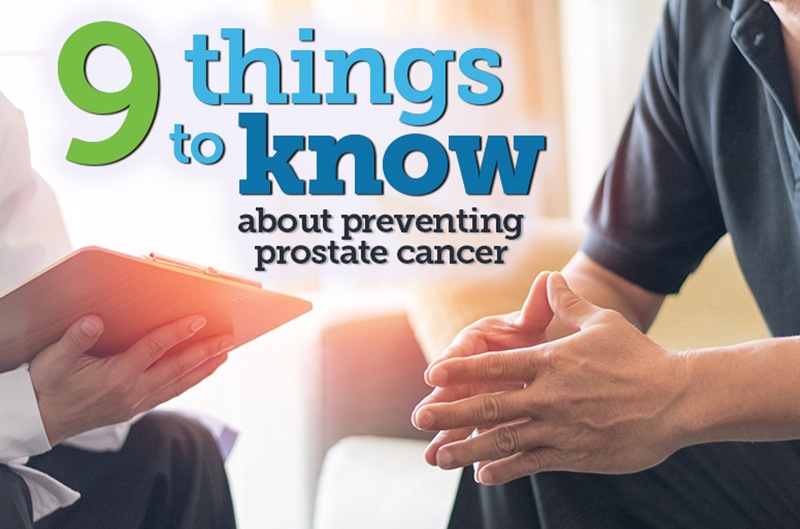
Let's talk about the one thing that all men can identify with: Prostate trouble.
The prostate is a sensitive gland that can easily swell for various reasons, causing problems with urinary flow and sexual performance among other things.
As men age their risk of prostate cancer increases, according to The American Cancer Society. One in nine men will get diagnosed in his lifetime, and 160,000 men get diagnosed every year.
Although prostate cancer mainly develops in older men -- the average age at the time of diagnosis is about 66 -- Dr. Constantine Mantz, a radiation oncologist on the medical staff of Lee Health, stresses that men shouldn't be lulled by the myth that the disease will only strike after a certain age.
Patients who have a family history or a genetic predisposition are also at risk, Dr. Mantz says.
The key thing to remember? Lifestyle changes are a key to prevention, and you can start at any age:
-
Diet, as always, is important: The Prostate Cancer Foundation stresses that diet and lifestyle changes can reduce development and progression. You can start with a healthier diet rich in fruits and vegetables – especially tomatoes cooked with olive oil as well as broccoli and cauliflower. The PCF recommends less red meat and more fish, which contains omega-3 fatty acids. Stick to a low-fat diet in general.
-
Exciting Exercise: Start slowly if you aren't used to it, and learn to find something you enjoy. It's just that simple. Swimming, cycling, walking, tennis—whatever will get you up and get the blood moving consistently week to week help your prostate health.
-
Watch that stress: The PCF says getting treatment for stress and depression – as well as high blood pressure, high cholesterol, and diabetes -- will save your life and improve your odds if you have to deal with prostate cancer.
-
Don't rely on supplements: The PCF warns men not to overindulge in dietary supplements and megavitamins. Some research suggests that too many vitamins can "fuel" cancer although there is no clear consensus. Be sure to talk to your doctor about vitamins, supplements, and herbal remedies you use. Also be wary of certain hormone treatments. Male hormones such as testosterone may play a role in development of prostate cancer, according to the PFC.
-
Know where you came from: Men should be acutely aware of their family history. Having a father, brother, or son with prostate cancer increases your risk! A man who has two or three first-degree family members with prostate cancer is 11 times at greater risk than someone who has no family members with prostate cancer.
-
The risk of race: African American men are at higher risk than men of other races and ethnicities.
-
Don't smoke: Not much else needs to be stated here. It's just a bad idea all around. Our experts in oncology education can help you quit today!
-
Regular screenings: The PSA test is essential for men after a certain age. Doctors encourage yearly screening for men after the age of 60, Dr. Mantz says. "There are certain groups of patients who need to be identified, and they need to be treated, and you will never identify them unless you screen for prostate cancer using a simple PSA test," he said. Men should get a PSA screening starting around age 40 to 45 if they have a higher chance of developing the disease. Remember that elevated PSA levels do not always mean you have cancer.
-
Sexual activity: A recent Harvard University study reported that frequent ejaculation seemed to help ward off prostate cancer. Scientists found that men who ejaculated 21 or more times a month enjoyed a 33 percent lower risk of prostate cancer than men who only ejaculated four to seven times a month.
-
Great chances: Finally, remember that most men diagnosed with prostate cancer don't die from it. In fact, more than 2.9 million diagnosed men in the United States at some point are still alive today.
If you would to contribute to Healthy News, please contact us at Social@LeeHealth.org

